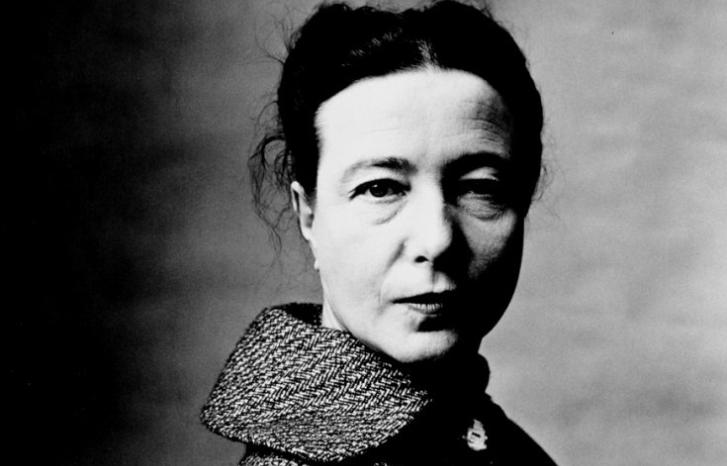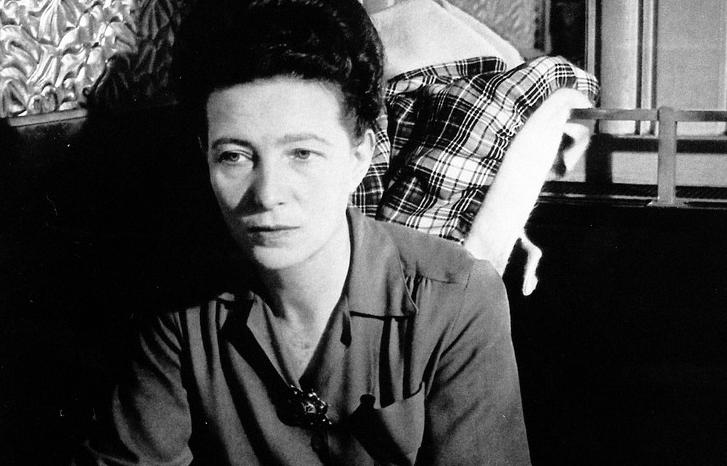In her “Writing Is Thinking” graduate course at Duke University, Toril Moi emphasizes three things: write on topics you care about; focus on your sentences and paragraph structure; write from a place of courage, not a place of fear. Moi practices in her own writing what she preaches in her class. In her essays and monographs, which include topics ranging from the taboo on treating literary characters as if they were real for The Point to the life and ideas of Simone Weil for the London Review of Books, Moi achieves a level of clarity, depth and conviction that few other academics can muster but that all, I think, should aspire to. Perhaps if academics take to heart the points Moi makes to her students, then they can collectively contribute to what she calls her “master plan to transform academic writing to the point where every article and every book is actually interesting and fun to read.”
Moi is James B. Duke Distinguished Professor of Literature at Duke, with additional appointments in English, Romance Studies and Philosophy. We talked over Zoom in November about learning how to believe in what you write and the blurred boundaries between academic and public writing.
Jessica Swoboda: How do you understand audience? Who do you write for?
Toril Moi: You have to assume you’re writing for someone who might be interested in whatever it is you’re discussing. There’s no point in writing for people who aren’t. It’s what I call (after Cavell) staking yourself in your writing. You have to assume that if you find it fascinating, there’s got to be someone else who does too.
JS: Do you ever get anxious about someone not finding what you have to say interesting?
TM: You know, I’m someone whose work has gotten a lot of quite nasty reviews over the years. So my view is you can’t write for the people who will hate you. That will just be impossible. You have to imagine a reader who’s curious and who will want to hear what you have to say. Then it’s on you to try to keep them reading. And you do that by working on your sentences and on your paragraphs. If you can’t get your sentences right, nothing will be right.
JS: Has reading those reviews changed your relationship to writing or how you teach writing?
TM: When I teach my “Writing Is Thinking” course, I notice that a lot of young academics write from a place of fear. They’re worried they won’t please their committee members; they’re worried they won’t pass prelims; and they’re worried they won’t get the Ph.D., a tenure-track job, or tenure. The American system is set up to produce that fear. And one natural response to that fear is to take as your model what others think a good argument, or a good piece of writing, is. But then you forget to ask yourself, “Well, do I believe this? Is this something I want to spend my life working on?” You want to make a case you can believe in, because otherwise the result is complete alienation, which I think is the greatest threat for young academics.
"You have this idea of the ideal intellectual, and you try to be like that. But now you have split yourself into a person who struggles to fulfill the demands of an external picture"
Beauvoir says that a woman under patriarchy is alienated because society holds up a standard for femininity that she is invited to take as her ideal. But in so doing, Beauvoir says, she is losing her freedom. Because instead of feeling free to, say, be a woman in the way you want to be, your freedom is now congealed into this picture of what a woman is, or what she must be. The same thing is true for a certain relationship to academia. You have this idea of the ideal intellectual, and you try to be like that. But now you have split yourself into a person who struggles to fulfill the demands of an external picture. As a result, you give up your freedom to write in a way that suits you, to work on what you want to work on. I’m trying to teach writing as a craft that you will get better at if you can become a little bit more courageous. And free.
JS: What assignments do you give your students to help them move away from fear and toward courage?
TM: I emphasize note-taking—it’s writing for themselves, a chance to create a space where they say what they genuinely think—as a way to let their voice show. I don’t mean they have to write their own biography, but they do need to show me where they stand. I want them to stop being so afraid that, in their writing, they end up sounding like robots. So I’m trying to get them in the habit of taking notes that will help them think through their ideas and form judgments. For instance, say someone finds a book on the public sphere in the eighteenth century wonderful. I would want them to articulate in their notes why they find it wonderful—to write down a few things they find striking and that connect to their interests. Those sorts of notes are much more helpful than any detailed summary will be when they sit down to write.
We also spend a lot of time editing individual sentences. Every week, I take sentences from each of their short pieces, and we edit them together. It’s very eye-opening for the people in the class to experience what it means to pay attention to their words, to discover what their sentence is actually saying. Every week we look at the sentence on the screen and rewrite it. At some point they realize that this is what it takes to make a sentence do what you want it to do, that it is really difficult but yet something one can learn.
"It’s one thing to realize that you have a voice and another to find that voice again, every time"
JS: Do you think they’re becoming freer and more courageous?
TM: In some cases, yes. Though I find it interesting that the moment I give them a more formal task at the end of the semester, like a 1000-word book review and not just a quick, informal, 250-word thing, they immediately fall back into the lot of academic trouble. You get this anemic summary of a book. And I ask them, “Well, what happened to your voice? Did you like the book? What parts did you like?” And they do get it. But it’s one thing to realize that you have a voice and another to find that voice again, every time.
JS: Is that why you teach the course? To help students find their voice?
TM: I teach “Writing Is Thinking” because I have this master plan to transform academic writing to the point where every article and every book is actually interesting and fun to read. I know this is ridiculous because my seminar admits eight students. I have often given up on reading academic tomes because they’re too deadening, so awfully dry, boring and turgid, with sentences that fall apart and never-ending paragraphs. Even if there’s a good argument lurking on page 203, I just don’t think I can get to it. Sometimes I make my way through them, but only if I absolutely need this for some piece of work I’m doing, and even then I’m almost screaming with the effort. If academic writing was always interesting and fun to read, then it would be a joy to read up on scholarship.
So my question is, do you think there are a lot of academics who genuinely don’t notice how something is written?
JS: I do. I don’t think they can pick up on the fact that their writing might bore other people. Or maybe it’s how they think they should be writing in this world.
TM: Then that’s the alienated model. I do think graduate schools have a huge responsibility here. There just isn’t any emphasis on writing at all. Sometimes there are courses on publication, but they tend to focus on how to produce an article according to the most ingrained academic rules. I’m not saying that’s useless to know, but it certainly won’t take away fear. And it actively encourages alienation, so it won’t do anything to make you an interesting or readable writer.
"If academic writing was always interesting and fun to read, then it would be a joy to read up on scholarship."
JS: One line I always return to in Revolution of the Ordinary is “Our words express and reveal us. They tell others who we are (at least if they pay attention).”
TM: That’s exactly what I’m trying to get across in my “Writing Is Thinking” class. I’m very Wittgensteinian, very Cavellian in that class. I believe that any sentence you utter is an expression of a judgment. It’s a judgment of how you see the world. I think Cavell is right when he says that a strong tendency in philosophy and theory is to think that the goal is to eradicate the speaking subject, to get rid of human subjectivity, in the hope that what will be left will be pure, absolutely certain knowledge. But that’s a standard of objectivity that no human being can live up to, for the simple reason that all human knowledge is developed by human beings. So the wish to get rid of voice and judgment and be stuck with pure reason is an unappeasable desire. Writing reveals this.
When I talk about the presence of the speaking subject, I am not talking about being overly confessional or personal. I am talking about the intellectual responsibility a person has to make it clear where they stand on the issues. There is no point in pretending that you have a bird’s-eye view. You are responsible for guiding your reader to see what you see. This means sprinkling your writing with phrases that tell me whether you’re summarizing a thing and agreeing with it, or summarizing it in order to show how misguided it is, or showing that the writer is right on this point, wrong on that point.
I have another question for you. What do you think the difference is between academic writing and writing for a wider audience? You’ve done it and you’ve been working on your dissertation, so, well, how does it strike you?
JS: The only difference is the lack of citation in public writing. At the moment, I’m finishing up a dissertation chapter and another public piece, and I’m realizing that the prose in both is very similar. And how I execute my ideas is very similar. What’s lacking in the public piece is just the breadth of engagement with other scholars that my dissertation requires. But I’m quite pleased that I’m noticing the two blending together, rather than seeing a difference between what my dissertation reads like and what this public piece reads like.
TM: Yeah, that’s right. For me, too. There is no difference for me whatsoever between the kind of sentences and paragraphs you can construct for public consumption and for academic consumption. The challenge is always attention to sentences, attention to paragraphs and attention to the presuppositions that are lurking in every sentence. You need to ask what a sentence assumes the reader will know. This is just as true for academic writing as for public writing. It’s not like good academic writing requires crooked and unclear sentences. The difference is the level of detail you include and the kind of debates you get into. It’s that knowledge of and interest in the scholarship that’s very different.
JS: Why, though, spend time writing these pieces in the first place? What’s the value in interpreting literature?
TM: First of all, writing is a way to find community with others, to discover whether you share judgment with them. Secondly, literary-critical debates are efforts to express what someone in a culture sees as urgent and important. Interpretation (or what I understand as simply “reading”) is where a culture comes to consciousness of itself. That’s a mouthful, and maybe too grand of a statement. But I think readings, and debates over readings, are crucial for coming to a kind of self-understanding of us as a culture.
I also think all literature expresses the experience of being human in a specific time and place. So a key word for me is experience, which has been anathema for quite a long while. Literature is one of the forms through which we can come to understand something about our own experiences. That’s another crucial reason why discussions of literature matter.
I think it’s futile to have a debate about whether the Marxist or the feminist reading of Pride and Prejudice is the right one. Obviously, we need both. Which reading you turn to depends on the kind of writer you are. I always say that we write as the thinker we are. If you’re a Marxist, you write as a Marxist; if you’re a feminist, you write as a feminist, and so on. If you’re interested in form, then that’s what you write about. Why should we make claims that there is only true reading of a book? Wouldn’t it be better to bring out the innumerable nuances and differences a text conveys? Reflections on differences in reading and on the implications of the experience the novel gives you, I think, are endlessly valuable and helps us understand our culture.
"Literature is one of the forms through which we can come to understand something about our own experiences. That’s another crucial reason why discussions of literature matter."
JS: I like your emphasis on experience, because it connects to your belief that writing is a way of helping others see what you see. So through writing, you’re inviting readers into your experience of the text.
TM: But you also have to expect that they won’t always see what you see and that you’ll feel like a lonely voice crying in the wilderness when they don’t.
JS: How would you describe the current state of literary criticism?
TM: I see that more people are interested in doing something that matters to them and using concrete examples to show that they are. For instance, I see more work on women writers, where each individual case is understood as a genuine, intellectual problem, which is different from working more generally on theories of gender. I see lots of interesting work on African American literature. Literary criticism will always be better when it’s driven by something the person wants to really find out and really cares about, as opposed to something that’s too programmatically theory-driven. I am a theorist, so I am not against working on theory! I am just suspicious of attempts to apply a given theory to literature.
If your article or book or essay is basically “Here’s my theory. And now here’s the literary text that illustrates it perfectly,” obviously, you may be right that the novel in question does in fact perfectly express what Foucault is saying about prisons. But wouldn’t it be better if you began by saying that and then showing why it matters, or why we should know this?
When theory is just applied to a text, it’s being treated as a security blanket that protects you from having to reveal yourself. If that’s the case, whatever you’re writing will always be bad, at least in the sense that it will be utterly predictable. When theory is used to help you get clear on a problem that matters to you, it can be very illuminating. You need to know a wide range of theories, and you should try to make those theories enter into dialogue with whatever you’re working on. Then they will help you see whatever question you are working on more clearly, but they won’t become the lens through which you see it.
JS: Is there anything you’d like to see more of in literary criticism in the next decade or so?
TM: Good question. I would like to see people write about literature in ways that are fully responsive, both to literature and the world. I’m not keen on purely formalist readings. If you think about the relationship between form and content—when you split it in a certain way, you end up with the signifier and the signified. The form, then, becomes reduced to empty shapes and figures, floating free of meaning. And the so-called “content” becomes equated with “reference” or “concept,” its “meaning” seen as dwelling behind or beyond the actual words. I hate that. I am interested in looking at language to see what work it does and how it affects people. I would like people to be more passionate and enthusiastic about literature.
This doesn’t mean that I think literary criticism should suddenly become entirely uncritical. I do think it can be a vital part of cultural debates and foment change. But I don’t think it does that by considering literature exclusively from the point of view of politics and power. Why be a literary critic if what you really want to do is change the world through social revolution? I am all in favor of literary critics being revolutionary. They will write as the revolutionaries they are. But if you become a literary critic only in order to have a second-order goal, then it seems to me that you should instead become a guerrilla fighter. Or a doctor working in war zones. Or a community organizer. Why be a literary critic if you can’t find anything that makes you truly passionate in the literature? So I would just like people to have some faith in literature and speak up for it, I suppose.
Thjs article was originally published in The Point Magazine, February 8th 2022. It has since been translated to Norwegian as part of "Kjønn og Akademia: På vei mot BALANSE?", edited by Ingeborg Owesen and Helene Aarseth.



